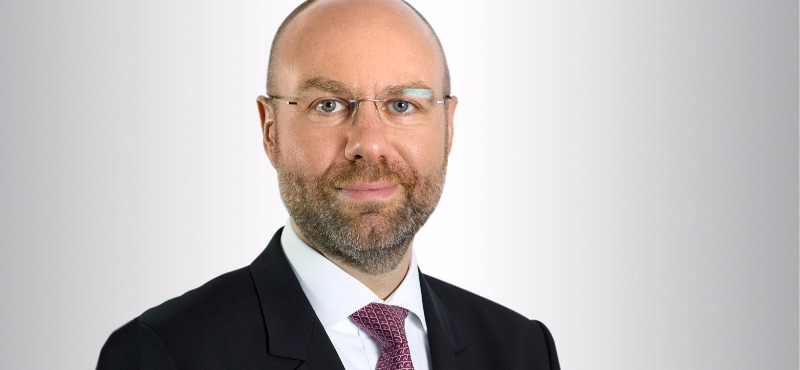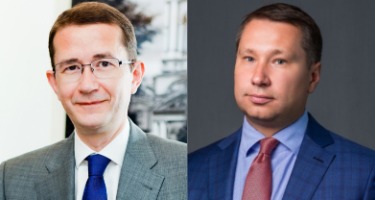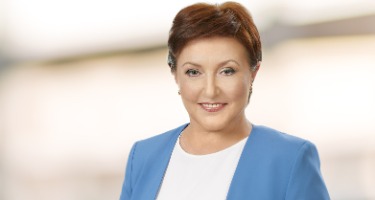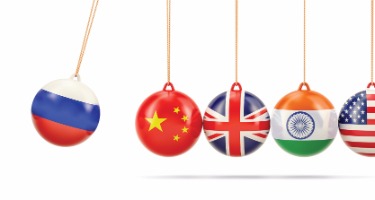A question and answer session with Florian Schneider, the managing partner of "Law Firm of the Year," Dentons Russia.
Can you tell me about some of your firm’s recent achievements that you believe contributed to Dentons being named a “Law Firm of the Year”?
Best Lawyers® “Law Firm of the Year” in arbitration and mediation and labor and employment law was not the only title we received this year; we were also named European Law Firm of the Year by Chambers and International Law Firm of the Year by The Lawyer. With so many associations naming us “Law Firm of the Year,” we must be doing something right!
Our global firm was the most awarded firm in 2016. We received 185 awards, if you count all the awards we received globally.
Despite the downturn, we have been expanding our Russian practice, adding the best legal talent to our Moscow and St. Petersburg teams. For example, in the last 12 months we have hired two partners, four counsels, and 12 lawyers in various practice areas.
First, we enlarged the corporate practice, which means we are receiving more work in this area. We also strengthened our tax practice. In fact, we are now the only international law firm able to offer full tax advice from due diligence to international and national tax planning. We founded a customs practice, which is unique among law firms in Russia. One of our lawyers, St. Petersburg Managing Partner Victor Naumov, was the first lawyer to come up with a draft law on artificial intelligence, which is unique worldwide.
Our dispute resolution practice is one of the largest dispute resolution practices in Russia: it has 24 lawyers, including 10 partners. Among them, seven partners are specialized in international arbitration. Considering the wide network of our offices in the CIS, we have a really strong arbitration presence in the region.
The employment and labor practice is very strong and is run by Marina Ryzhkova, who has established a very successful practice in Russia over the last 16 years. In my personal opinion, she’s the leading employment lawyer in the country.
We were very happy to receive so many individual nominations from Best Lawyers. The “Lawyer of the Year” for investment recognition received by Karina Chichkanova, for example, is a great achievement. She is the lawyer who has developed and continues to develop our St. Petersburg real estate practice. Mikhail Ivanov was named “Lawyer of the Year” in arbitration and mediation. Evgenia Teterevkova, who rejoined our firm some time ago, has been recognized for M&A law. Artem Zhavoronkov was recognized for banking and finance work. I think this is much-deserved.
What are some of the pressing issues in Russia right now within the arbitration and mediation law and in the labor and employment law practices?
I think regulation is increasing right now. Of course, the arbitration proceedings reform has radically changed the procedure for the creation and functioning of arbitration courts and international commercial arbitration courts. For example, in corporate litigation and arbitration proceedings a new law effective February 1 says that disputes between shareholders can now be arbitrated in commercial arbitration courts. This is actually something very new: before, they could only be arbitrated in state arbitration courts. So now with the option of commercial arbitration courts, foreign investors can benefit from filing with commercial arbitration courts. Since last year we also have new mandatory pre-arbitration procedures when filing with Russian commercial courts. They are somewhat comparable to the instruments and procedures that you find in other jurisdictions. It is good that we also have them here in Russia now. I think these are the pressing things in arbitration and litigation.
Aside from that, do you find there are other large challenges within either of those practice areas currently?
I think the challenges are from a practical point of view or the management point of view; of course, there are other challenges besides the legal challenges alongside new laws coming into force. We would like to further expand our litigation practice by bringing in a partner in the corporate commercial arbitration and litigation area. But it is hard to find more good litigators on the market. It is also now hard to find really good partners that are also willing to move because everyone is quite busy—which is a good sign.
Are there any changes that you foresee happening in the near future in either of these practice areas, and how do you think your firm will accommodate those changes?
For labor and employment, I think what we feel right now is that in recent times the state has and continues to support the rights of employees in general. This is in connection with the current economic situation, and of course we have to expect that the support will continue. However, there are already employee-friendly labor laws, and we are already helping our clients to optimize their investments when hiring as well as when optimizing their businesses. Even if there are further changes or improvements to employees’ rights, I don’t see this having any effect on our practice. Our practice is very successful and also very specialized in employment litigation and in employment consultancy. Therefore, I don’t foresee any effect on it. We might enlarge our practice because our employment lawyers are very busy.
Regarding arbitration and mediation, I predict that the work will only increase. The challenge that we will face is the increase in work and increase in overseas, state, commercial, and local arbitration. In how we will react, I think we will build up our capacity and even hire new teams or partners in that area and grow. We have to grow because that is what our clients expect from us. They expect us to help represent them in arbitration proceedings; therefore, we will have to build up our capacity in that regard.

































